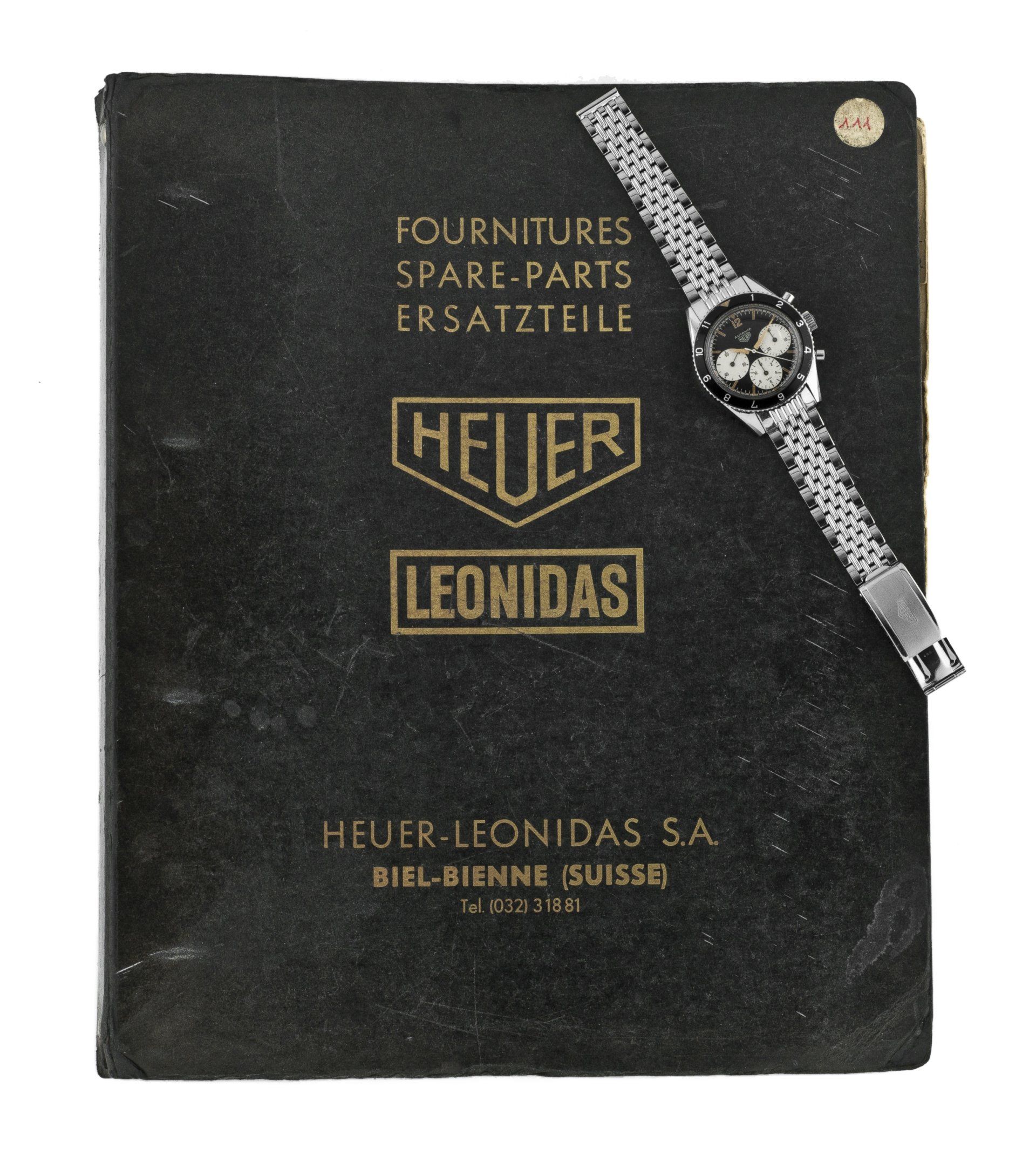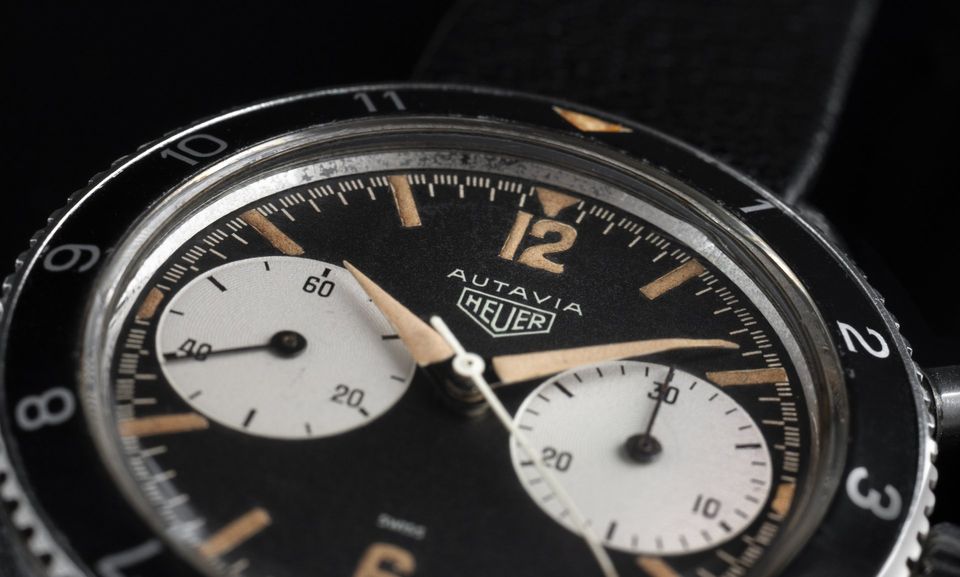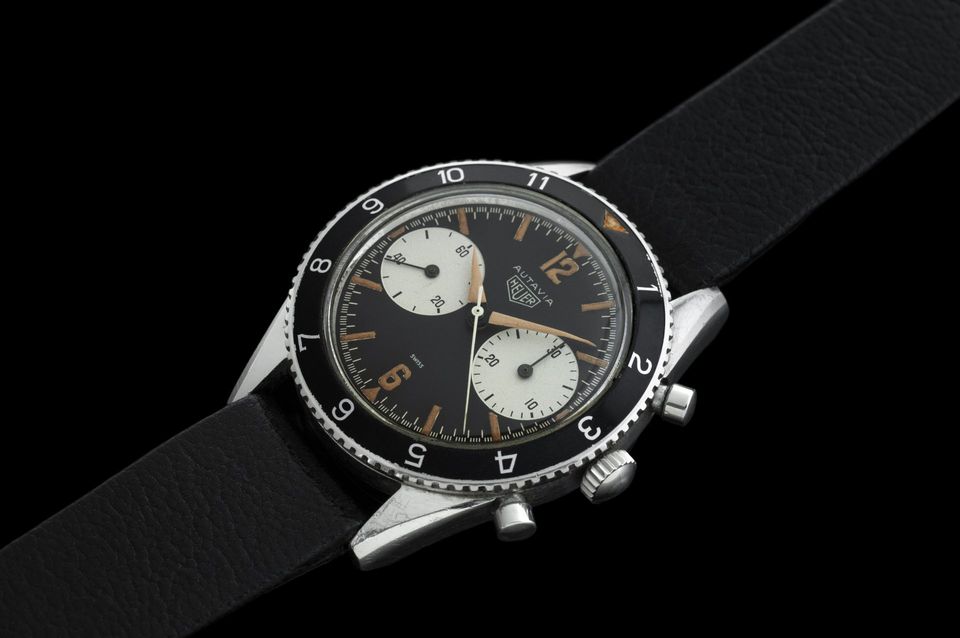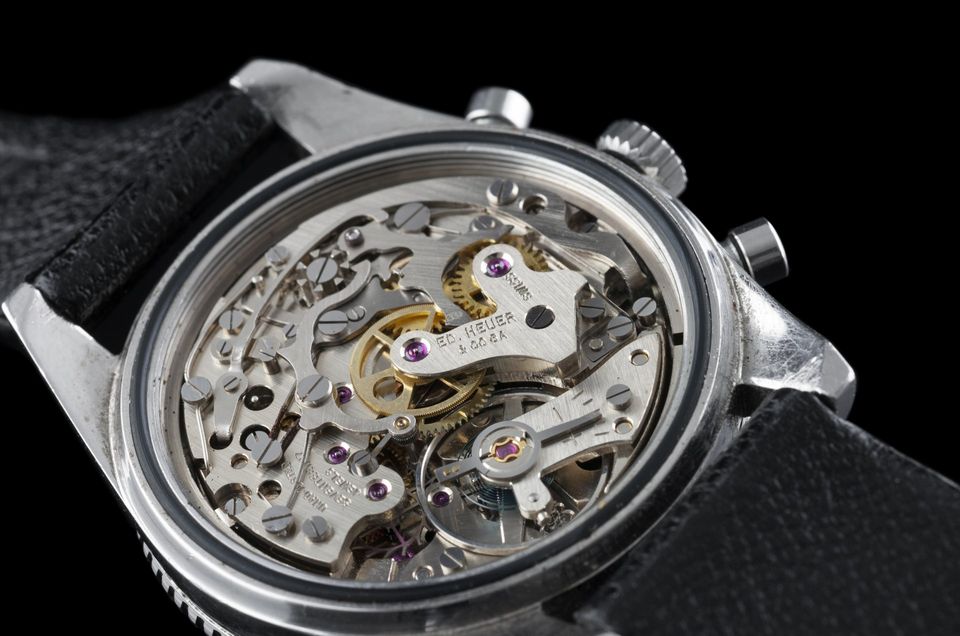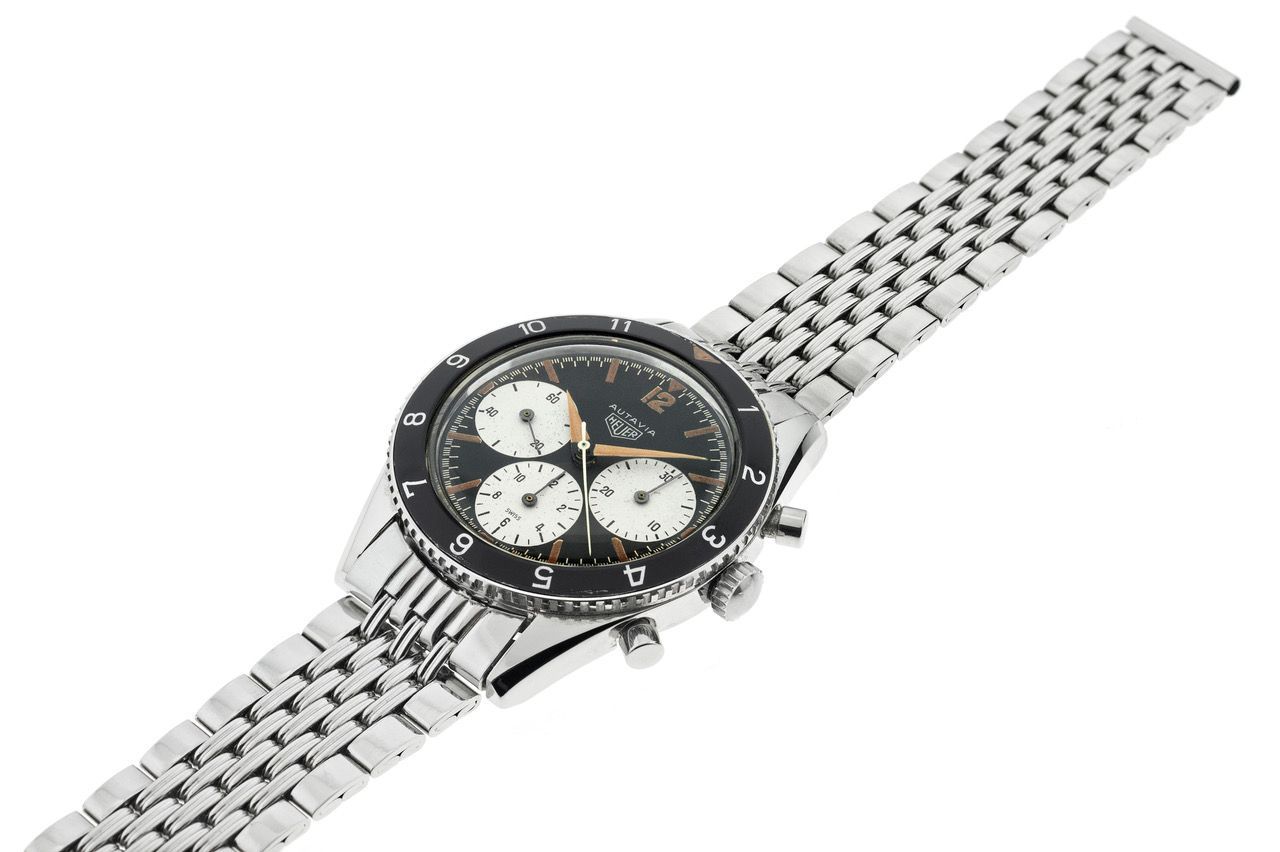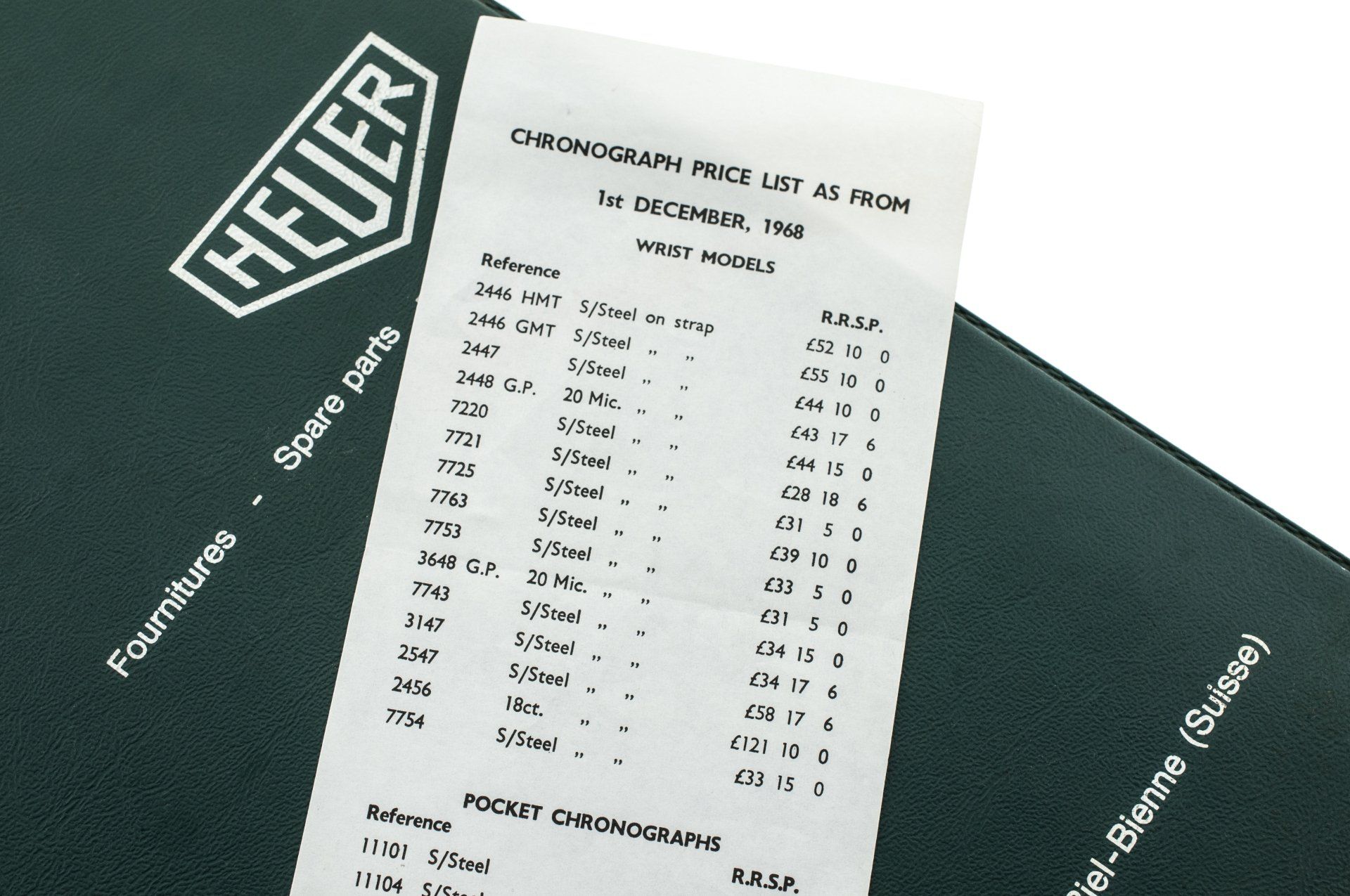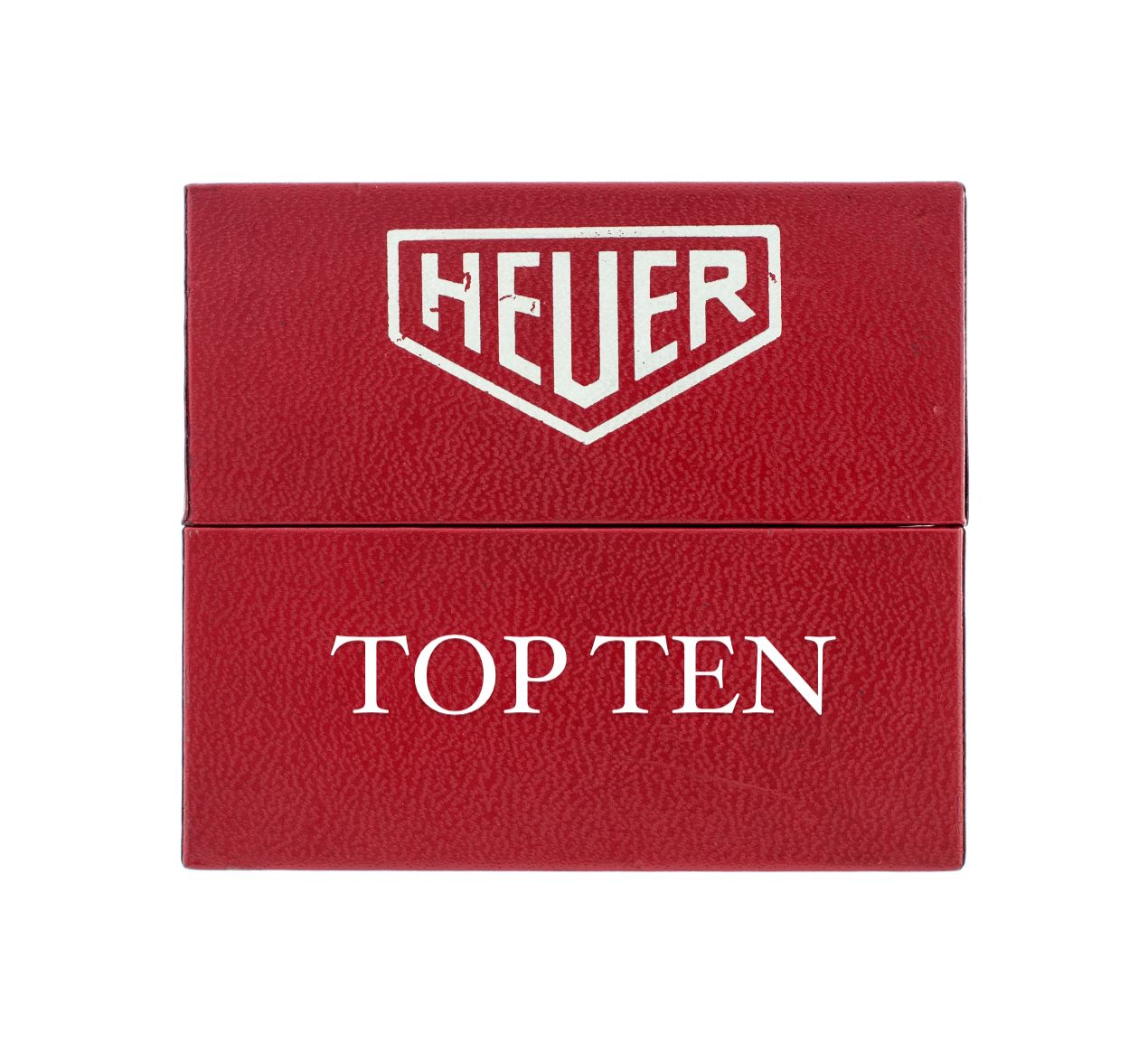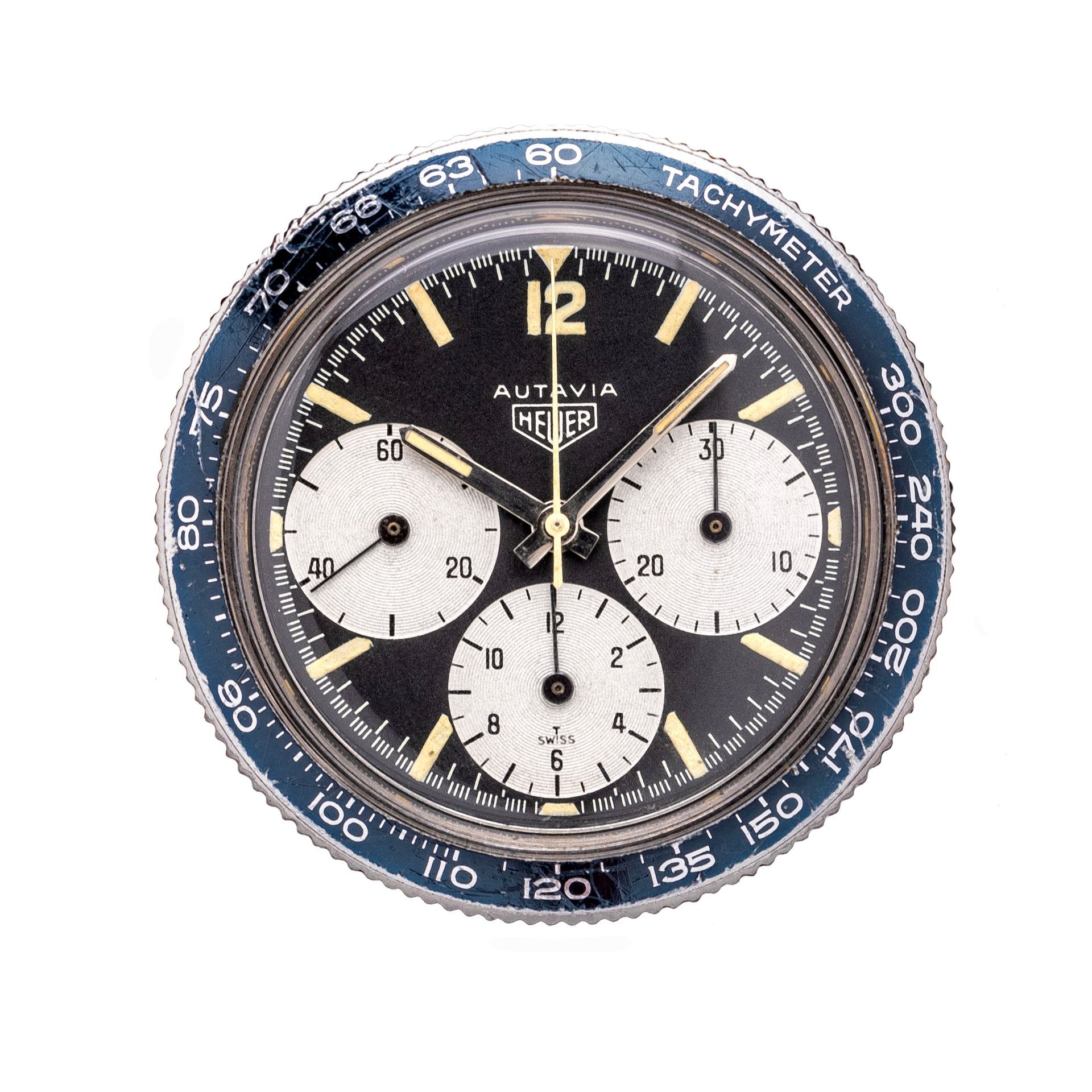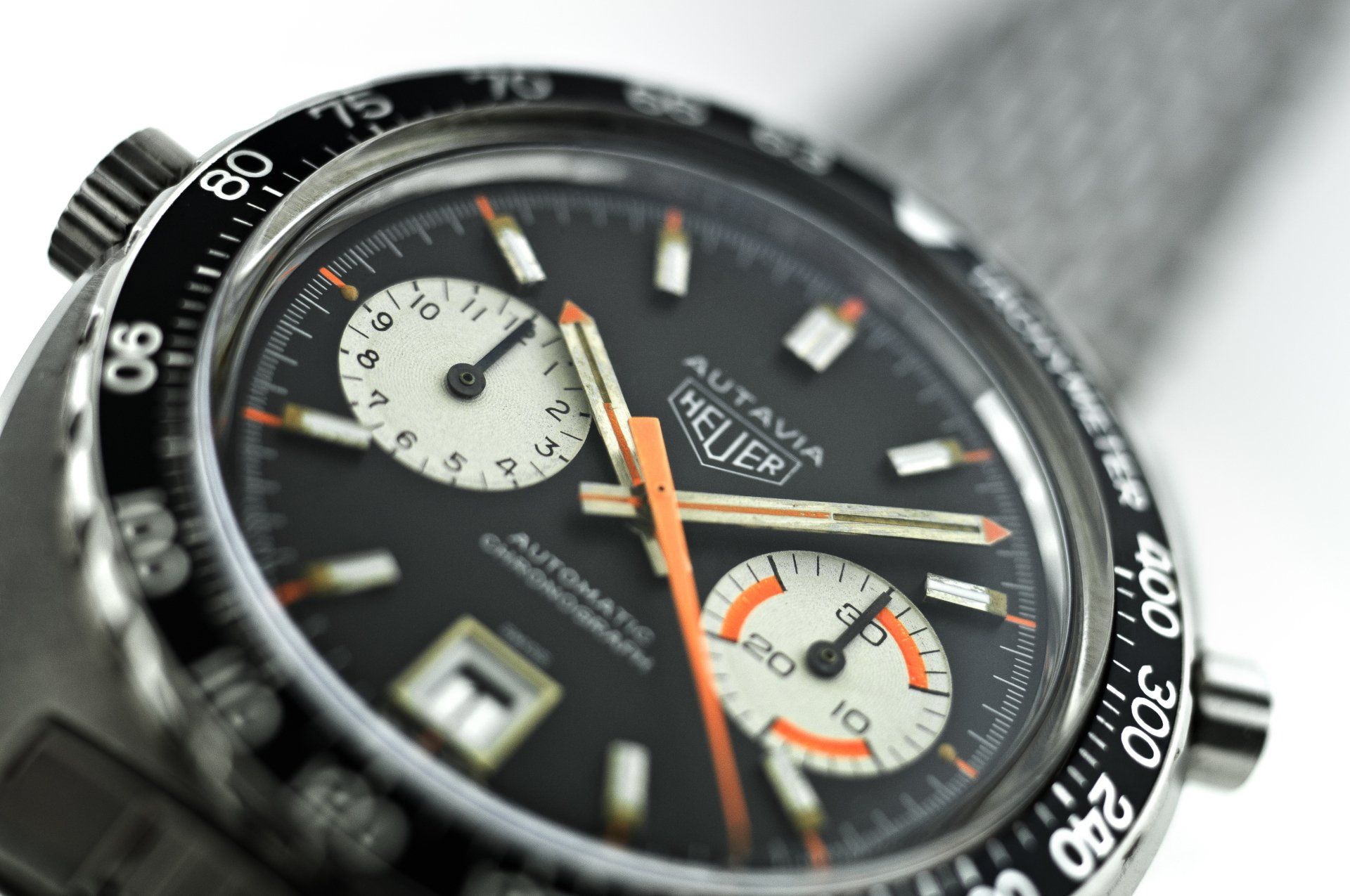The Autavia 3646 1st Execution
The origin of the Species - Heuers first named chronograph the Autavia
To understand where the Autavia came from you need to cast your mind back to the early 1930s, when Heuer introduced a dashboard timer using the Autavia moniker. The name was chosen to appeal to the two sectors that Heuer thought would garner the most interest, namely automotive and aviation, which were highly exciting and emerging areas of modern life and technology at the time, amalgamating the AUT/AVIA. For their first named wrist chronograph, Heuer was still appealing to the same market and used the tagline "those for whom life and a taste for adventure are one and the same" and the design cues were a simplified and scaled-down interpretation of those early beautiful dashboard timers, with contrasting sub registers for improved legibility. This stunning chronograph came to market in 1962 and appeared with a two (3646) and three (2446) sub register layout, priced at $99 and $119, and were powered respectively by the Valjoux 92 and 72 movements which have become so famous today amongst collectors. The two sub dial layout on the 3646 allows for the additional attractive design feature of the Radium applied 6 over the 2446 version which is appreciated by collectors. There is no doubt that the design of these first Autavias has aged well and though they will celebrate their 60th anniversary in 2022, they are likely to look just as cool in 2062! With many 1960s chronographs looking similar with their layout, it is the combination of the "big subs" with the "all lume" hands that really stands out, and makes them the pinnacle of Heuer collecting much as the "Broad Arrow" hands make the 2915-1 Omega Speedmaster the pinnacle of Omega collecting. In this blog I concentrate on the two sub register variant the 3646.
Buy Heuer Collector Books
The very earliest Autavia serials in the run are reserved for the all lume hand 3646 pictured here, with the earliest Autavia serial found to date being 48653 (please get in contact if you have an earlier one, or one unknown to me that I can add to the private research database). These very early watches from 1962 always featured both dial lume and hands coated entirely in Radium, pre the Tritium conversion in 1963/64 (if they are not Radium then they are not original). These special hands appear only on a certain batch of serials with a likely batch size of fewer than 200 units - it is a truly rare chronograph and around five times rarer than the slightly later 1st execution with the steel dauphine hands.
On these early 3646 collectors should be wary of serials that fall after the 4884x serial range as this is where the very first batch ends, and "all lume" hands after this point have "probably" been added at a later date. Also look out for dials/hands that have been relumed, with such rare and important pieces originality is key. These very early examples share the same components, namely the "all lume" hands and wide lume filled bezels, but also the smaller pusher and domed crown. The pushers and crown got a little larger in the later examples and the hands saw several different dauphine versions and even a small run with a red chronograph sweep hand. Lastly, note that the Valjoux 92 should be signed Ed Heuer & Co SA, as should the case back inside.
Currently there are 15 known 3646 all lume hand examples on my database and I tend to see fewer than one new to market per year, usually found by collectors. With such a small amount of data it is hard to be precise but I would estimate the pricing range is £20,000 - £70,000 condition dependant. Bezel condition is particularly important because a perfect one might set you back five figures. Note that the 2446 version (which is the same rarity level) is more valuable as the rule within the collecting community is - three sub registers trumps two for desirability.
To learn more about the vintage Heuer Autavia, pick up a copy of the Autavia 1962-85 book or Heuer Superstars via the link below.
